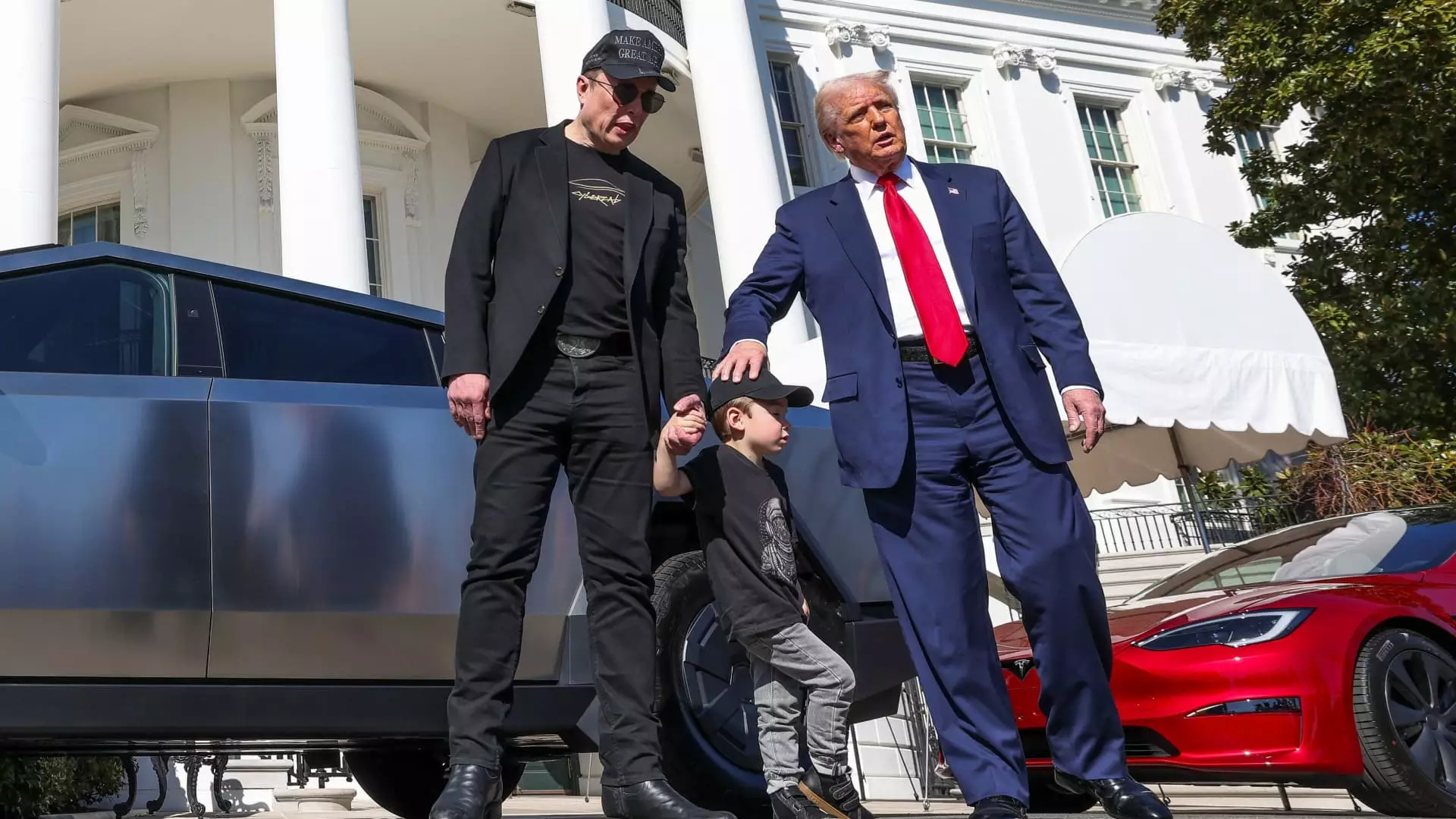In a world increasingly shaped by geopolitical tensions and trade policies, tariffs have become a pivotal issue for global corporations. Elon Musk, the CEO of Tesla, recently articulated his stance on this topic during the company’s first-quarter earnings call. Musk, who is often seen as having a close relationship with political powers, revealed a nuanced perspective on tariffs that highlights not just his opinions, but the realities of operating a major automotive company in a fluctuating economic landscape. Unlike many traditional automakers, Tesla has strategically established localized supply chains in North America, Europe, and China, which positions it uniquely amid tariff fluctuations.
Tesla’s resilience in the face of potential tariff chaos sets it apart from many of its competitors. While Musk expressed a clear preference for low and predictable tariffs, he acknowledged that the ultimate decision lies with the President of the United States. In a climate where tariffs can shift overnight based on policy decisions, Musk’s insight into the systemic implications of these changes offers a breath of fresh air for stakeholders who often navigate uncertainties without clear guidance. Instead of merely decrying high tariffs, Musk emphasized adaptability and resilience as critical attributes of Tesla’s operational strategy.
The Deteriorating Financial Landscape for Tesla
Despite the strategic advantages gained from its operational decisions, Tesla reported disheartening quarterly earnings, with a staggering 20% decline in automotive revenue year-over-year and a catastrophic 71% drop in net income. Moreover, the company has refrained from providing financial guidance for 2025 until at least the upcoming second-quarter update. Such performance metrics raise eyebrows, revealing that economic undercurrents may threaten even the most forward-thinking companies.
While Musk remains bullish about Tesla’s innovative capabilities, the stark numbers present significant challenges. Many industry watchers may ponder whether the constraints induced by tariffs, combined with Musk’s sometimes controversial declarations, could ultimately jeopardize Tesla’s long-term viability. By not accurately gauging consumer reactions to price adjustments resulting from tariffs, the company risks alienating its customer base who may feel the brunt of increased costs.
A Divergence on Policy: Musk vs. Navarro
The tension in trade policy has extended even to Musk’s relationship with the Trump administration, particularly regarding the views of Peter Navarro, Trump’s chief trade adviser. Musk notably referred to Navarro as a “moron,” an unusual public rebuke that highlights the complex interplay between business leaders and political figures. In navigating the murky waters of trade, Musk’s willingness to diverge on tariffs while maintaining a generally cordial relationship raises questions about internal government dynamics.
Musk’s comments on countering “predatory” tariff practices suggest a keen understanding of the competitive landscape. His advocacy for lower tariffs aligns with an emerging consensus among economists regarding free trade principles. This adherence could bolster Tesla’s position, allowing the company to harness global resources and maintain competitive pricing.
The Quest for Self-Sufficiency in Supply Chains
Musk’s acknowledgment of Tesla’s dependency on international supply chains reveals the ongoing struggle for self-sufficiency in an interconnected world. The potential fragmentation due to tariffs accelerates the need for innovation in local production capabilities. Musk emphasized existing efforts to manufacture lithium iron phosphate (LFP) battery cells within the United States to mitigate reliance on Chinese imports. Yet, he candidly admitted the road ahead is fraught with challenges, as technological capabilities and infrastructure take time to develop.
Additionally, while Tesla has made strides with its lithium refinery in Texas, Musk humorously noted, “we’re not growing rubber trees and mining iron yet.” This remark captures the pragmatic reality of balancing ambition with logistical realities. The quest for localizing supply chains is as much about enhancing operational efficiency as it is about navigating external pressures.
Through these dialogues regarding tariffs and operational realities, Musk illustrates a refreshing blend of optimism and realism that is essential for navigating the tumultuous waters of the automotive sector. As he remains a vocal advocate for lower and predictable tariffs, Musk’s strategies could inspire other leaders to rethink their global supply approaches in a world where unpredictability has become the new norm.

